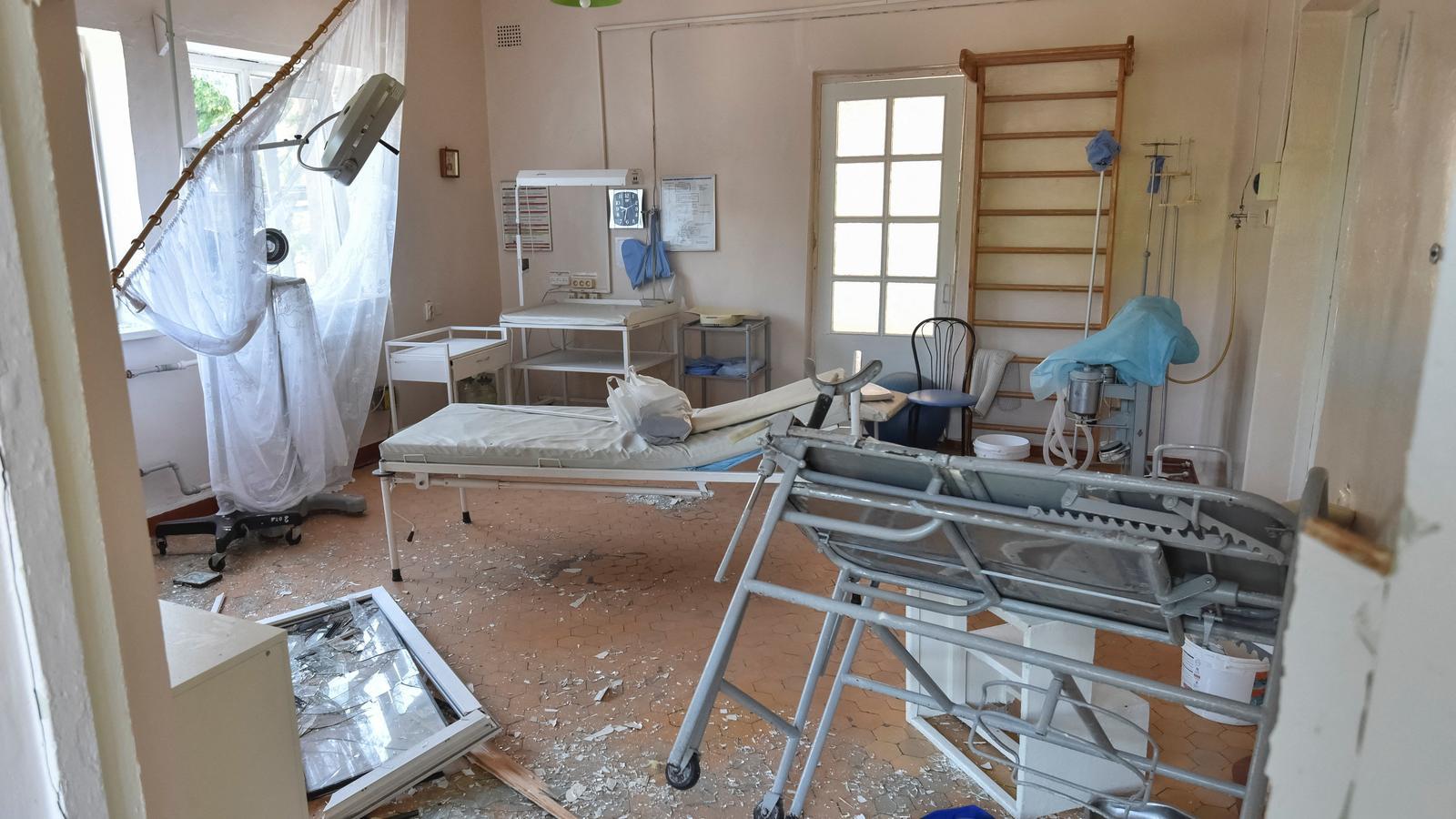Putin responds to Trump's new ultimatum with one of the deadliest bombings in recent months.
17 people have died in a prison in Zaporizhia, five in Dnipropetrovsk and five in Kharkiv.


MoscowVladimir Putin pretends to feel it raining Donald Trump's announcement to shorten the deadline to stop the fighting in Ukraine before imposing new sanctions. A few hours after the new ultimatum, the Russian army launched one of the deadliest airstrikes in recent months. First, against a prison in the Ukrainian region of Zaporizhia, which left 17 dead and at least 82 wounded; then, against the Dnipropetrovsk region, where another five people were killed; and finally, around midday, in the Kharkiv region, where another five died.
At the Bilenkivska penitentiary, all the victims were inmates. The guided bombs destroyed the prison cafeteria and damaged administrative buildings, as well as surrounding homes. The Ukrainian justice system has described the attack as a "war crime" since it involved civilian infrastructure. However, the Kremlin has shrugged off its responsibility, stating, as it routinely does, that "the Russian army does not attack civilian targets, but military ones."
In Dnipropetrovsk, Russian missiles hit a hospital in Kamianske, killing three people, including a 23-year-old pregnant woman, according to Volodymyr Zelensky himself. Meanwhile, in Kharkiv, in the village of Novoplatonivka, bombs fell on a store where some people had gone to get water because they have no supply in the municipality. In total, 27 people died in nearly 12 hours, and more than 100 were injured.
The Ukrainian leader assures that he "welcomes President Trump's efforts and his determination to achieve peace," but believes that the latest attacks "demonstrate that Moscow deserves very tough, truly painful, and therefore fair and effective sanctions" that will force it to "stop."
On Monday, the US president again expressed his anger at Putin's unwillingness to halt the bombing and set a new 10- to 12-day ultimatum before imposing 100% tariffs on Russian imports and sanctions on countries that buy oil.
The Kremlin downplays the threat
The Kremlin has not only demonstrated its disdain for Trump's gesture through actions, but also through words. Its spokesman, Dmitri Peskov, simply responded that "they have taken note" and added that "the special military operation continues." He added a phrase he repeats day in and day out: "We remain committed to the peace process to reach an agreement in Ukraine and look after our interests."
Furthermore, the harshest political voices within the Russian government have raised their voices against the US president. Former Russian President Dmitri Medvedev wrote on Telegram: "Trump should remember two things: Russia is not Israel, not even Iran. And every new ultimatum is a threat and a step towards war. Not between Russia and Ukraine, but with his country."
The sympathetic press assumes that Putin will keep his plans in Ukraine intact. In the newspaper NewsBogdan Bezpalko, a member of the Council on Interethnic Relations, notes that "Moscow is taking it easy" and that "they no longer took the 50-day ultimatum seriously." He continues: "We have grown accustomed to these statements and do not accept them; this ultimatum adds nothing new."
Komsomolskaya Pravda, journalist Andrei Baranov writes: "No one in Russia intended to accept the US ultimatum. It would be naive to think that Moscow would stop its advance into the new territories that are now part of Russia until they are fully liberated." He adds: "Their concept of peace through strength may be suitable for resolving regional conflicts of lesser importance and intensity, but applying it in Russia could lead to a terrifying world war that Donald Trump himself wishes to avoid."
According to the Moskvoski KomsomoletesThe White House leader's decision is directly related to the agreement between the European Union and the United States on 15% tariffs. One of the newspaper's main columnists, Mikhail Rostovsky, believes that Brussels has "bought" Washington. "You can't just be a friend of someone, you can also be a friend against someone, and this someone "It's Russia," he writes.
Experts also believe that Trump will not dare to impose sanctions on states that buy Russian oil because that, in turn, could cause global fuel prices to skyrocket and, therefore, seriously harm the American economy. has recovered the positive trend.
